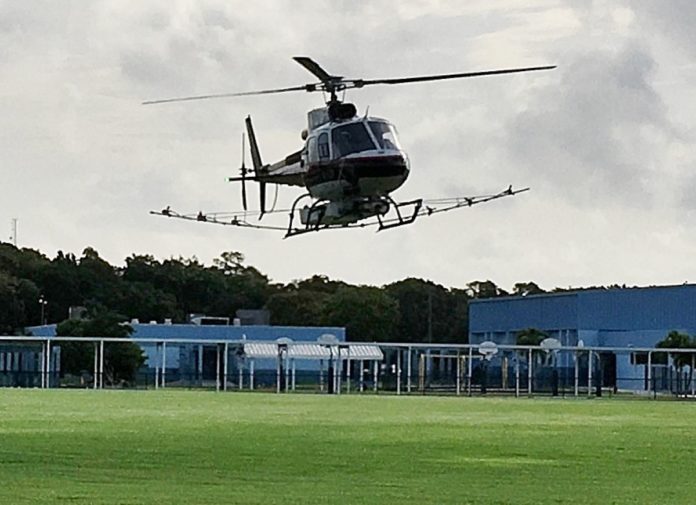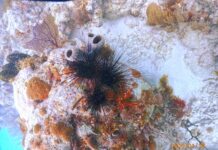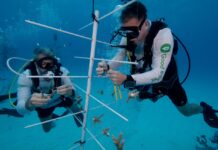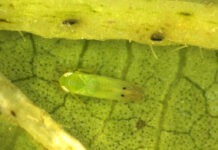
A dengue outbreak in the Upper Keys isn’t over just yet as mosquito control officials continue to spray and survey neighborhoods.
Five additional cases of dengue were confirmed to the Florida Health Department in Monroe County in the past week, bringing the total number of people infected to 47 since it officially broke out in mid-June. For months, the Florida Department of Health and the Florida Keys Mosquito Control District (FKMCD) have been working diligently to address the dengue fever outbreak.
“Residents and visitors need to remain vigilant and take the appropriate actions to prevent mosquitoes from biting,” said Andrea Leal, executive director for the Florida Keys Mosquito Control District. “While the Florida Keys Mosquito Control District acts to address the mosquito population, it is important to remember that the rainy season continues through the rest of the year. It takes a village to control the spread of this disease.”
Dr. Mark Whiteside, medical director for the Florida Health Department in Monroe County, said
the actions by the Florida Keys Mosquito Control District and the community prove to
be promising.
“Recent dengue transmission in the Upper Keys has been limited, with new cases,
hopefully, on the decline,” he said. “It’s important for residents to continue following basic mosquito bite prevention methods to help end the outbreak.”
The department and FKMCD highlight the actions taken thus far to respond to this outbreak.
• When persons of interest — or suspected cases — of dengue fever are identified, FKMCD is
notified and appropriate mosquito control efforts are conducted immediately.
• FKMCD inspectors go door-to-door to treat every residence and business in a three-block
radius from the suspected case location and/or other outdoor areas visited. Any adult and/or
larval mosquitoes found are treated on the spot. Truck and/or aerial adulticide and larvicide
treatments were conducted throughout the areas of concern to reduce the mosquito
population. Hand foggers were also used in certain areas. Mosquito traps are placed in the
area to monitor the Aedes aegypti population. Collected mosquitoes are
tested for mosquito-borne diseases.
• FKMCD is seeing fewer Aedes aegypti mosquitoes being trapped. This decrease, along
with actions taken by FKMCD and the community, is indicative of the decreased number of
acute cases being identified over time by DOH.
• FKMCD continues to use the stadium at Key Largo School as a makeshift landing and
loading zone as part of the agency’s enhanced response, utilizing the site twice per week.
• DOH set up a call line for residents to call who have questions or are exhibiting symptoms
of dengue fever. They are asked to call 305-293-7500, option 3.
• Robust dengue fever prevention campaign, “Dump Dengue,” has been launched by
FKMCD.
• Thousands of door hangers and flyers are being disseminated in the Upper Keys area
calling attention specifically to Dengue fever.
• Mosquito repellent was provided by DOH and distributed widely by FKMCD.
The health department also reminds all residents to drain all standing water at least once per week and designate individuals to share this key responsibility within the business or household.
For more information, visit www.floridahealth.gov/dengue or www.keysmosquito.org. To
view surveillance reports, including weekly mosquito-borne illness surveillance reports,
visit: www.tinyurl.com/mosquitosurveillance.





















